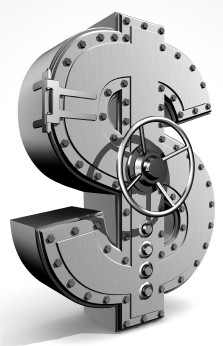MBR Key-Takeaways
1. When using a lockbox, the entire deposit transaction takes place in one day, meaning your practice gets its money into its account much faster.
2. Many physicians and office managers are surprised when they look at the total time involved in receiving, preparing and depositing checks that arrive in the mail.
3. Having a lockbox ensures your practice is no longer at risk of any funds being misappropriated.
A lockbox can be a great tool for your practice, especially if you are looking to improve your cash flow. Obtaining a lockbox at a bank means that your receivables are mailed directly to a designated post office box. The bank picks up those receivables and deposits them into your account, usually for a monthly fee based on the number of transactions. The bank will then inform you of changes in your account.
When deciding if a lockbox service is right for your practice, the first thing to consider is the time it normally takes for a check to get into your bank account after it is received. Under normal circumstances, this typically takes a minimum of three days, but could be significantly more depending on a variety of unforeseen circumstances that affect your staff. However, when using a lockbox, the entire deposit transaction takes place in one day, meaning your practice gets its money into its account much faster.
Once you have calculated how long it takes a check to make its way from your office to the bank, the next step is to determine the costs associated with having a staff member open, endorse and copy checks, prepare deposits, and distribute checks every day. Depending on the number of checks that arrive in the mail, this could take as many as three to four hours per day. These hours could be used improving other aspects of your practice. Ask yourself: Could this person be doing something else to support revenue generation, instead of clerical tasks? Is this person, or someone else, responsible for taking deposits to the bank? Is it on company time? If so, how much time does that take? Many physicians and office managers are surprised when they look at the total time involved in receiving, preparing and depositing checks that arrive in the mail. By calculating the salary and benefit expenses associated with this process, adding any additional revenue that would be generated if that person were performing different tasks, and subtracting the lockbox expense, you may find that the practice would break even or even improve profitability by investing in a lockbox.
An additional benefit to having a lockbox is that your practice is no longer at risk of any funds being misappropriated. Whenever staff members handle money, there is a chance that it may disappear, either by accident or on purpose. The lockbox takes the place of an employee, which will give you extra security that your hard-earned money is getting deposited correctly and in a timely manner.












